Nestled in the southwestern region of Turkey, the picturesque town of Isparta has a remarkable history deeply tied to its rich floral heritage. From acres overgrown with varieties of roses to the rich purple of its lavender fields, Isparta has gained a reputation as a floral paradise for flower lovers, as well as recognition as a place of natural beauty.
With its ideal climate, fertile soil and long horticultural tradition, Isparta has become a vibrant center for the cultivation of exquisite roses and has built a reputation as the floral capital of the country. So, what is the flower story behind Isparta? What makes its landscapes so fragrant and what is the significance of flowers in this fascinating Turkish city?
The evolution of Isparta and its floral culture
Isparta, located in the Mediterranean region of Turkey, has a rich history dating back thousands of years to the Roman period. It was said to relate to the ancient city of Baris, which was part of the Roman province of Pisidia. It later became a Christian bishopric, a suffragan diocese of the metropolitan see of Antioch of Pisidia, capital of the province.
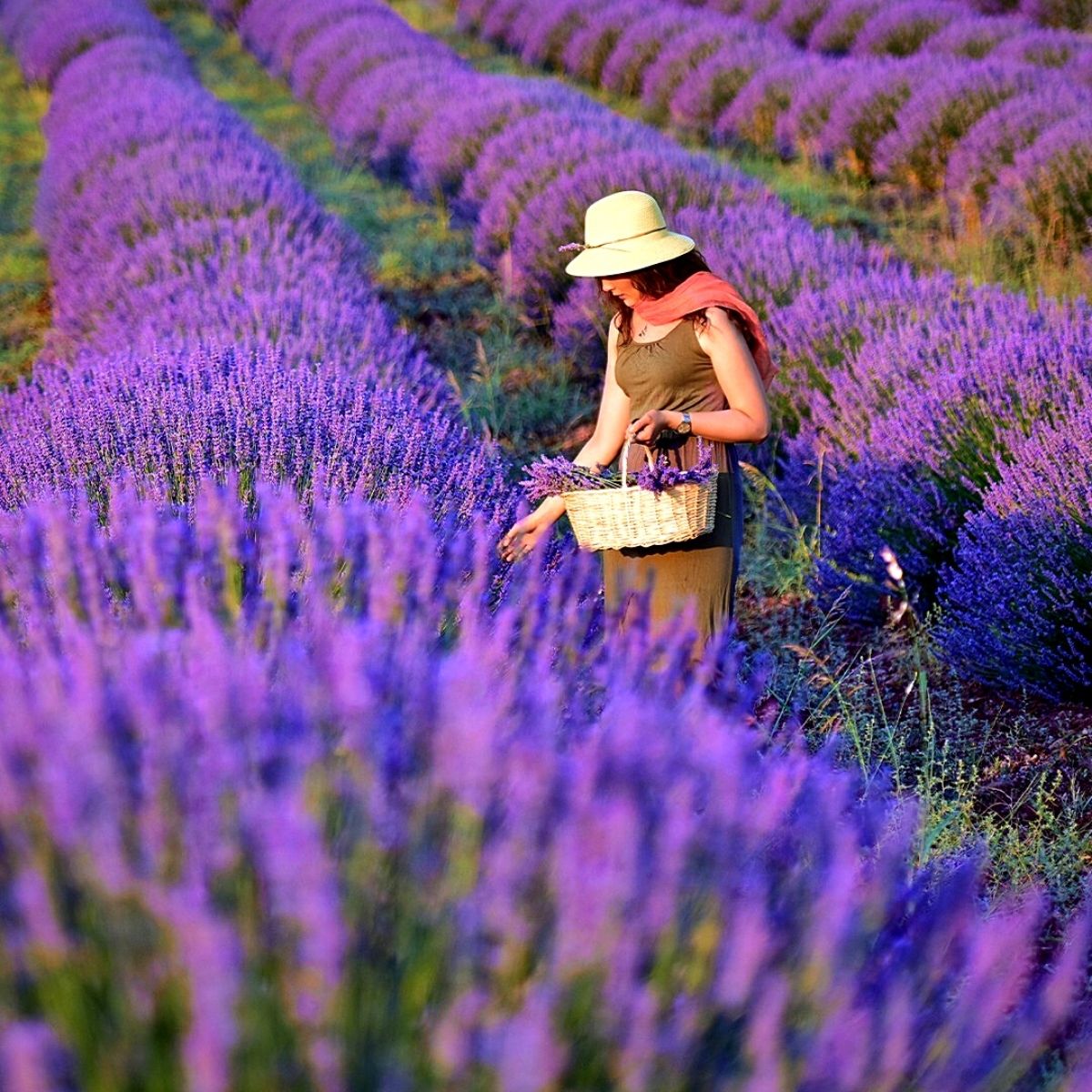
photo by @goisparta
Over the centuries, Isparta has been influenced by various civilizations, including the Hittites, Phrygians, Lydians, Persians, Greeks and Romans. These cultures recognized the agricultural potential of the region and contributed to the development of horticulture thanks to the perfect conditions which attracted settlers.
At the end of the 13th century, Isparta became part of the Hamidids, and in 1381 it was sold to the Ottoman Sultan Murad I by the Hamidid Emir. In the late 19th century, Muslim immigrants from the Balkans settled in the region. Some accounts indicate that Bulgarian emigrants brought their knowledge of Kazanlik rosewater production with them to the city.
The history of rose cultivation in Isparta also dates back hundreds of years. Flower production in the city probably began with Müftüzade Gülcü İsmail Efendi (1840 -1915), a merchant. In the 1870s, he brought with him to Isparta a rose seedling from the Kazanlik region of Bulgaria.
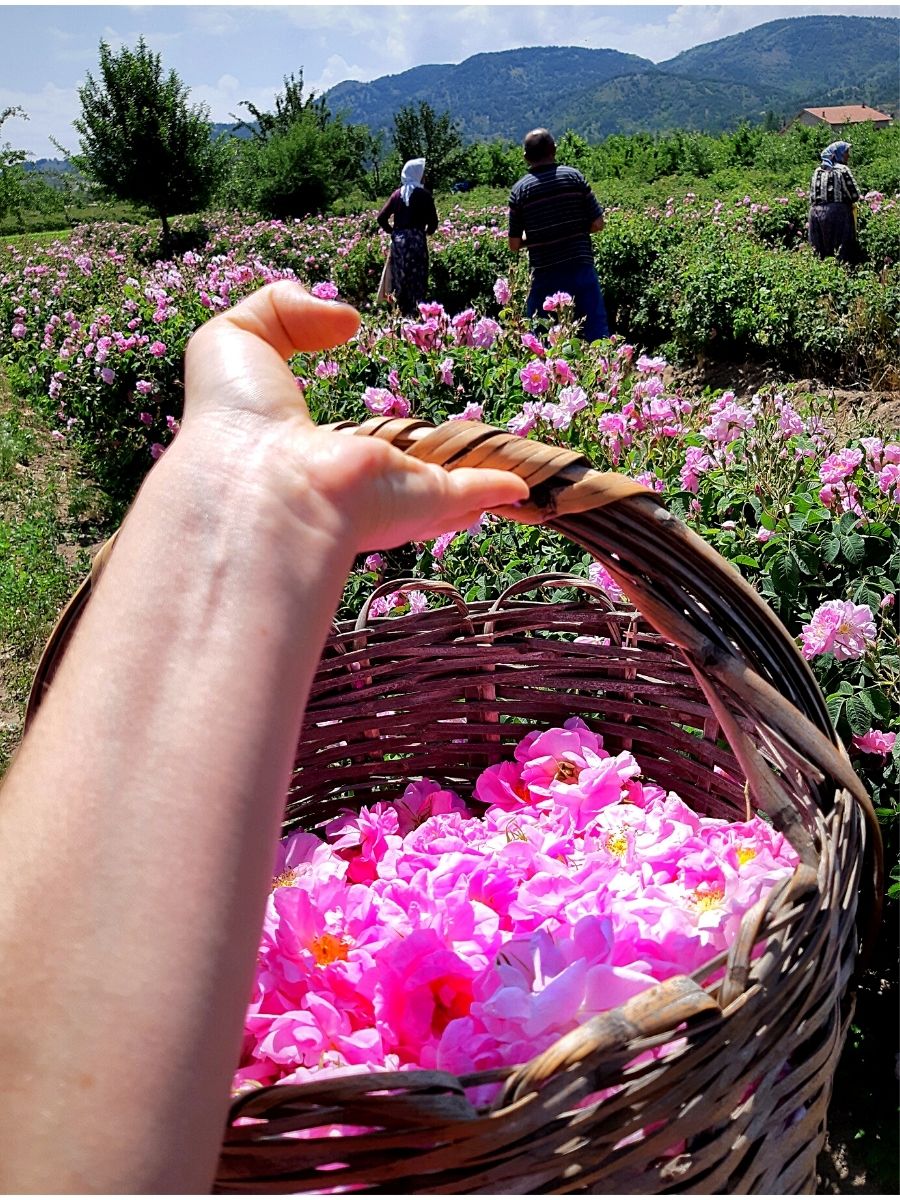
Photo by AYLIN GÖRAL
He later learned how to extract rose oil from a Bulgarian family and attempted to grow the flowers for this purpose. Despite initial challenges and failures, Efendi persisted and, after a few years, successfully grew these flowers.
It is said that he was the first to bring the oilseed rose to Isparta and later produced the first rose oil. And for this reason, he was later named “Gülcü İsmail Efendi”. Its success inspired other locals to start their own rose farms, transforming Isparta into a region synonymous with roses.
As a result, the small town became home to a specific variety of roses called Rosa Damascena Mill, a variety grown exclusively for the production of rose oil and rose water. Rose oil is widely used in cosmetic products, while rose water is mainly sold as a freshener.

photo by @goisparta
In addition to roses, lavender fields quickly became more and more common in the city. For example, the Lavender Valley, located in the Kuyucak village of Keciborlu, offers a spectacular view which could easily rival the Provençal villages of France.
The flowers of Isparta
As noted previously, Isparta is renowned for its production of several varieties of flowers. But roses and lavenders are the most present. The city’s rose production, in particular, earned it the nickname “City of Roses.”
The roses of Isparta are highly appreciated for their exceptional natural fragrance and are used in the production of various products such as rose oil, rose water and rose cosmetics. The roses most commonly used in perfumery processes are the Turkish rose, the Damascus rose (or Damascus rose), and the Centifolia Rose, also grown around Grasse in the south of France, and generally considered to produce a rose absolute of the highest quality. Actually, Lancôme, a French luxury perfume and cosmetics house, uses this rose for its perfumery.
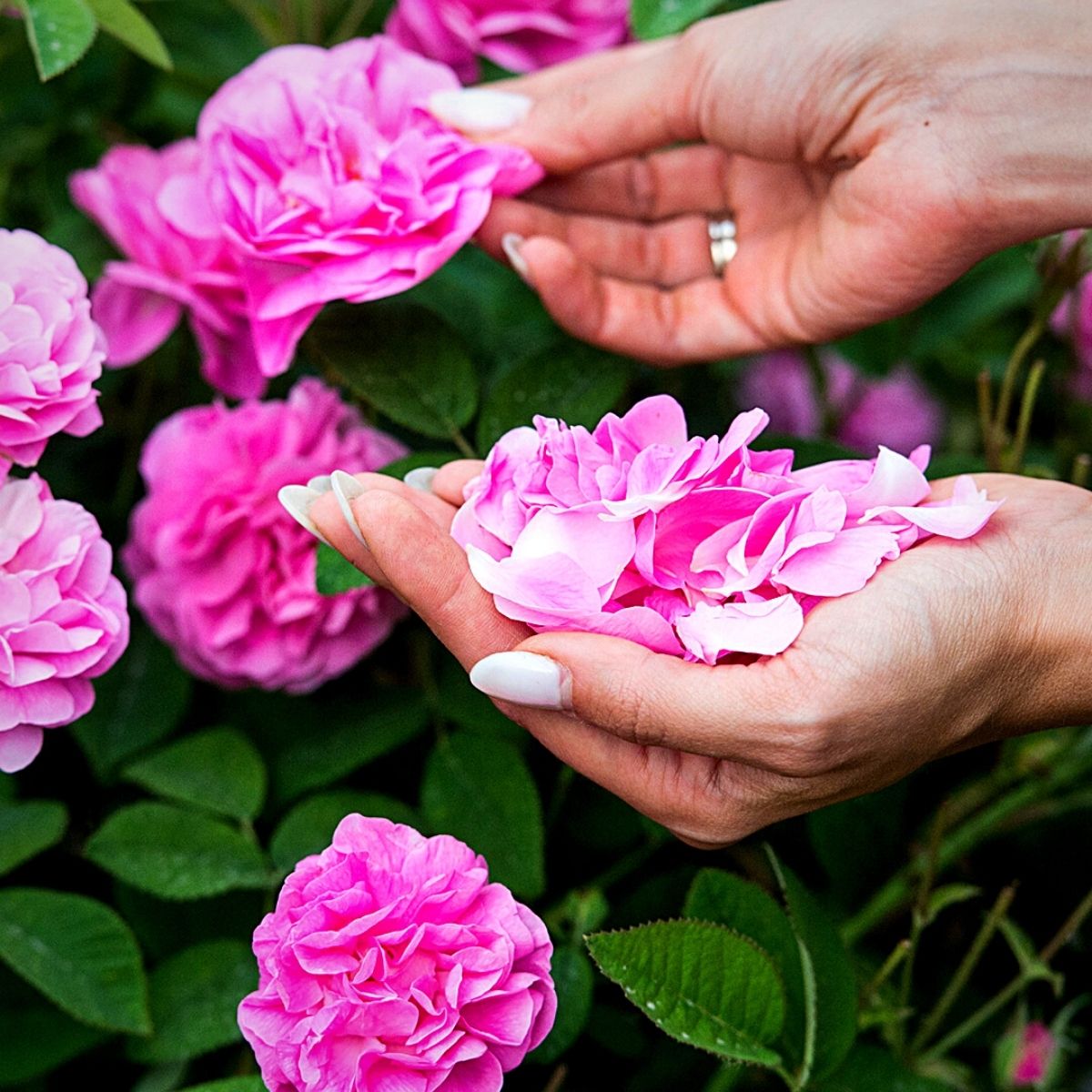
Photo by @goisparta
Lavender (Lavandula angustifolia), another popular flower in the region, is known for its calming aroma. It is harvested in full bloom and dried to preserve its fragrance and therapeutic properties. The essential oil extracted from lavender is widely used in perfumes, cosmetics and aromatherapy products.
The cultivation of Isparta roses is particularly worth mentioning. The city is famous for its Damascus roses (Rosa Damascena), much appreciated for their intense natural perfume and oil content. Rose flowers are picked by hand early in the morning, when their fragrance is strongest. These delicate flowers are then processed through steam distillation to extract rose oil, also known as rose attar.
And just in case you didn’t know, Isparta rose oil is considered one of the best in the world and is a crucial ingredient in the global perfume industry.
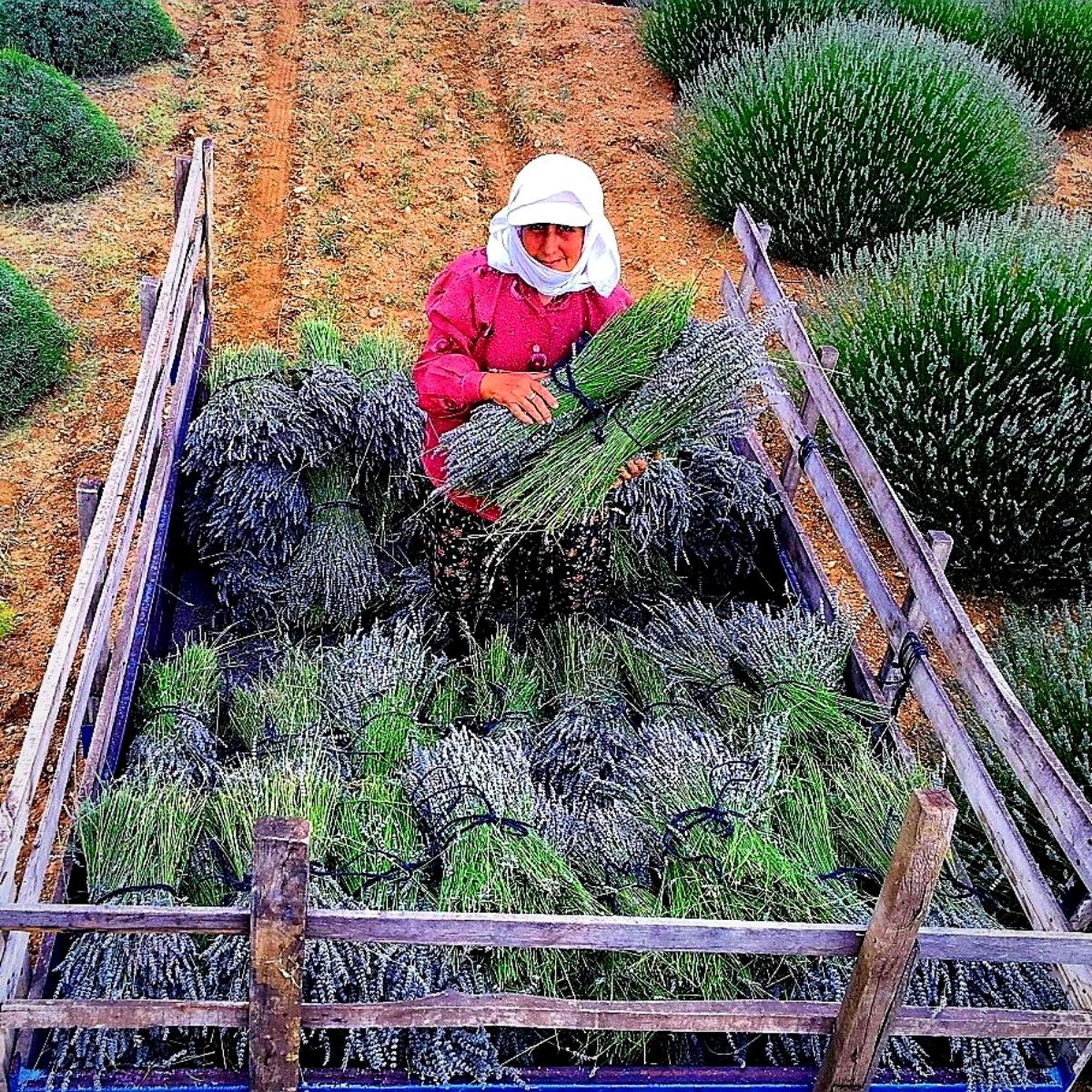
photo by @goisparta
Ideal conditions for flower growing and harvest season
Isparta’s climate is characterized by hot, dry summers and mild winters. These conditions provide an ideal environment for growing flowers. The region benefits from abundant sunshine, moderate rainfall and a clear variation in temperature between day and night, all conditions which contribute to the growth of high quality flowers with vibrant colors and intense fragrances.
Flowers’ the harvest season in Isparta begins in May and lasts until the end of June. During this time, many tourists visit the city to experience the delightful sight of rose and lavender fields. Visitors can also pick roses from the fields themselves, work alongside locals and learn about the processes applied to the flowers after they are harvested.
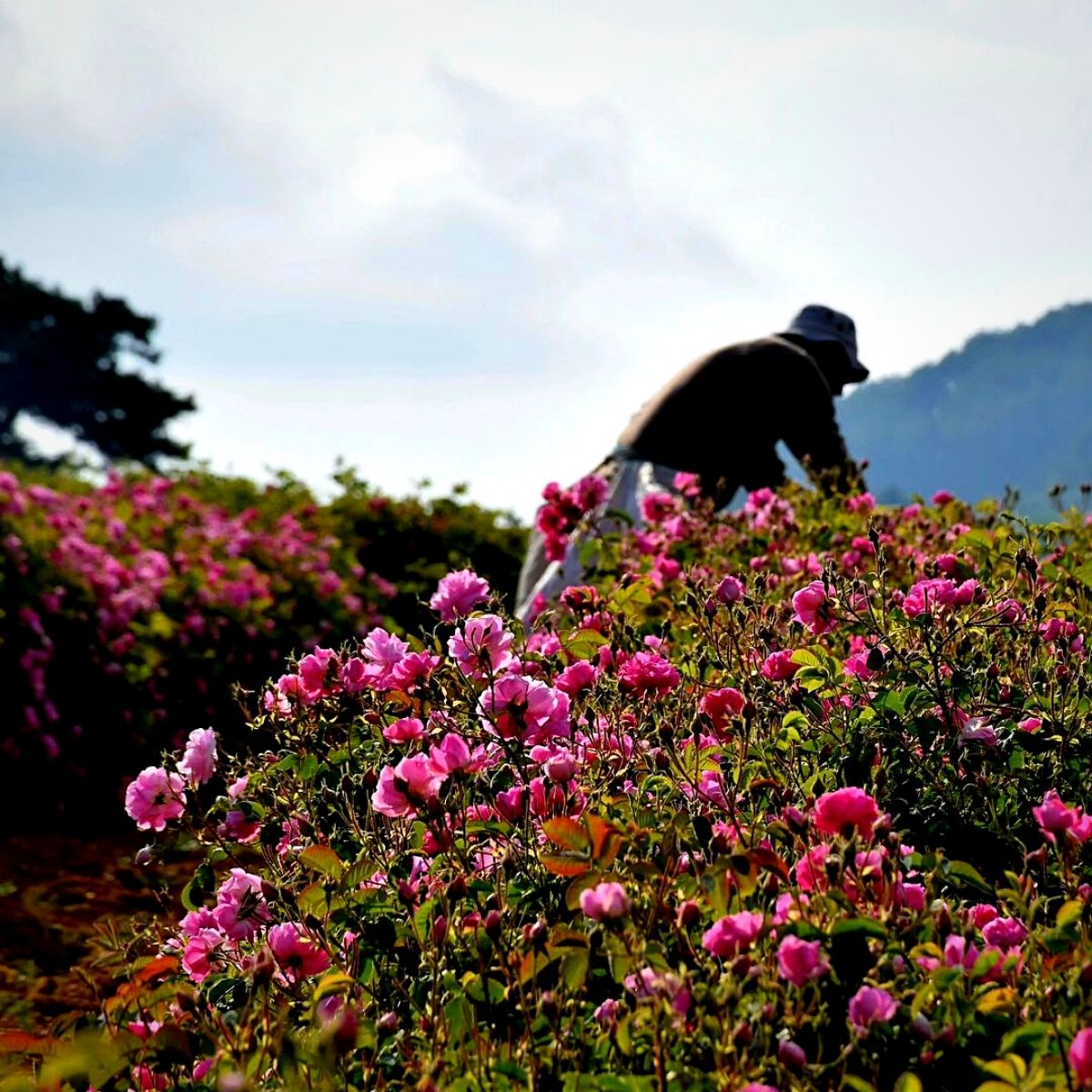
photo by @goisparta
The result of this floral industry in Isparta has been the creation of employment opportunities and a contribution to the local economy. Flower cultivation supports the livelihoods of many residents, directly and indirectly, through employment in agriculture, processing and production of floral products. Additionally, Isparta’s floral festivals and events attract tourists from all over the world, promoting cultural exchange and boosting the city’s tourism industry.
It is worth mentioning that the city supplies around 65% of the world’s rose oil requirements, making it a global leader in the sector.
What about the benefits to the local community?
Growing flowers in Isparta not only brings economic benefits, but also contributes to the well-being of the local community. The cultivation and processing of these flowers creates a sense of pride and cultural identity among residents, who continue to preserve and pass on their traditional knowledge and practices.
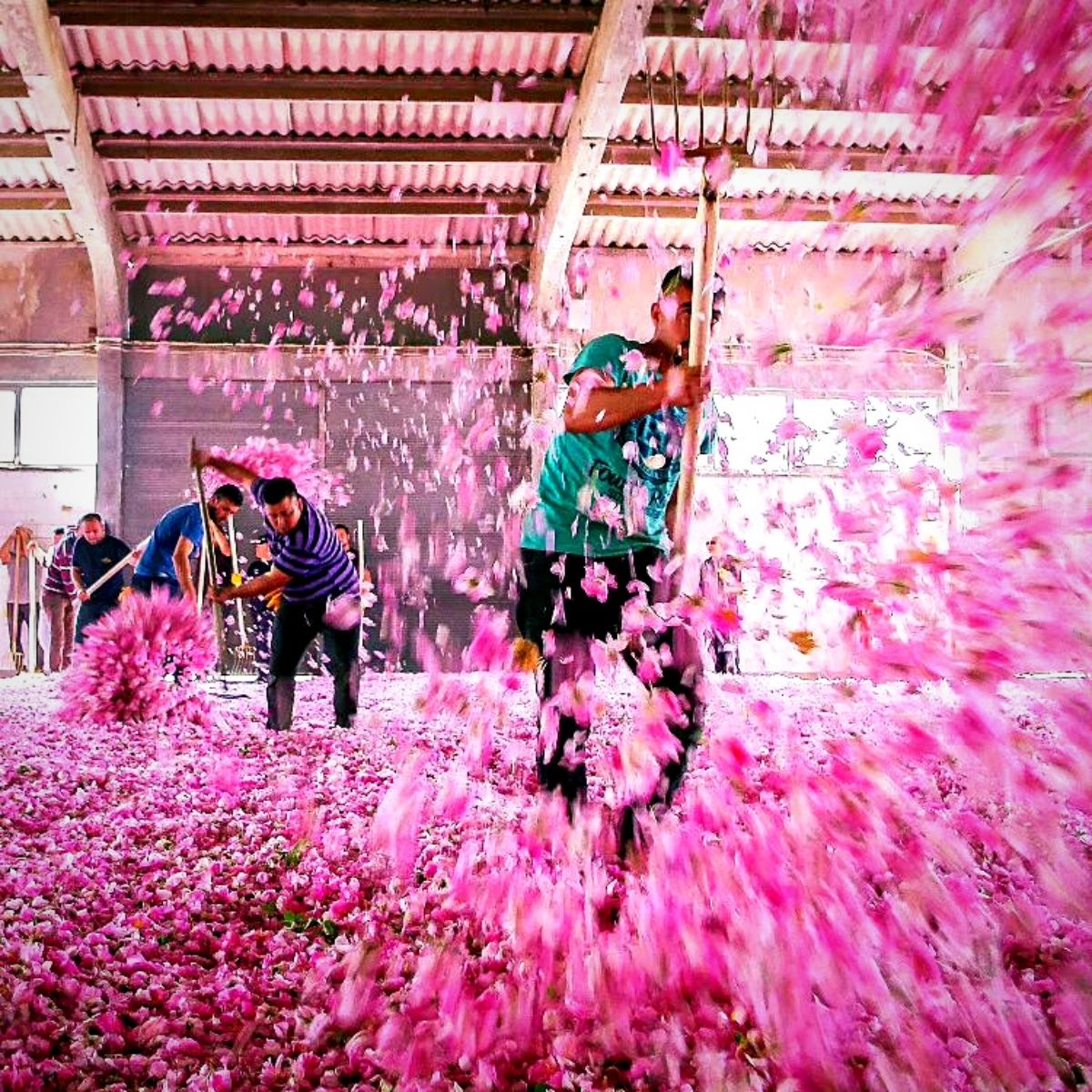
photo by @goisparta
Additionally, the floral industry promotes sustainable agricultural practices, as flowers are often grown using organic methods, minimizing the use of pesticides and synthetic fertilizers. Many farmers favor organic farming practices, thereby reducing the use of synthetic chemicals and in turn promoting biodiversity. This approach helps protect the environment and ensures the long-term sustainability of floral production in the region.
Moreover, with natural fragrances known to have a mixture of beneficial effects on people, these exquisite flowers have therapeutic properties which benefit the local community. Perfumes and essential oils derived from roses and lavender are used in aromatherapy, encourage relaxation, stress relief and overall well-being. Basically, flowers usually provide mental therapy.
You can also learn more about the Therapeutic capabilities of various floral scents in oil diffusers.

photo by @goisparta
The availability of locally grown flowers also enhances the aesthetics of the city, providing a pleasant environment for residents and visitors.
Additionally, Isparta’s love for flowers is celebrated through various festivals and events. A typical example is the rose festival of Isparta, which takes place every year in May and is a highlight of the city’s cultural calendar. During the festival, the streets are adorned with roses, and locals and visitors alike participate in parades, concerts, and traditional folk dances. It is a festival that highlights the deep connection between Isparta’s identity and its thriving floral industry.
As a result, this city’s floriculture industry has gained international recognition, particularly for its commitment to the preservation and promotion of rose cultivation and for its contribution to the global horticultural community.

photo by @goisparta
A floral tradition that spans (and persists) for generations
Among the hundreds of rose species available, 24 of them are documented in the Turkish flora. The city of Isparta, often nicknamed the “Turkish City of Roses”, continues to maintain its centuries-old tradition of growing roses. This is aided by its rich history, ideal conditions for growing flowers and its economic and cultural importance which continually make it a thriving center for the floral industry.
Rosa Damascena Mill, also known as Isparta Rose, Pink Oil Rose, Oil Rose, Gum Rose or Damascus Rose, is the species mainly grown in Isparta, and its product, rose oil, is now an indispensable product in the perfumery, medicine and cosmetics industries. .
On the other hand, its naturally produced rose water is used as a flavoring in some foods and desserts because it does not contain harmful substances, as well as in makeup and body care products due to its ability to nourish the skin and tighten the tissues.
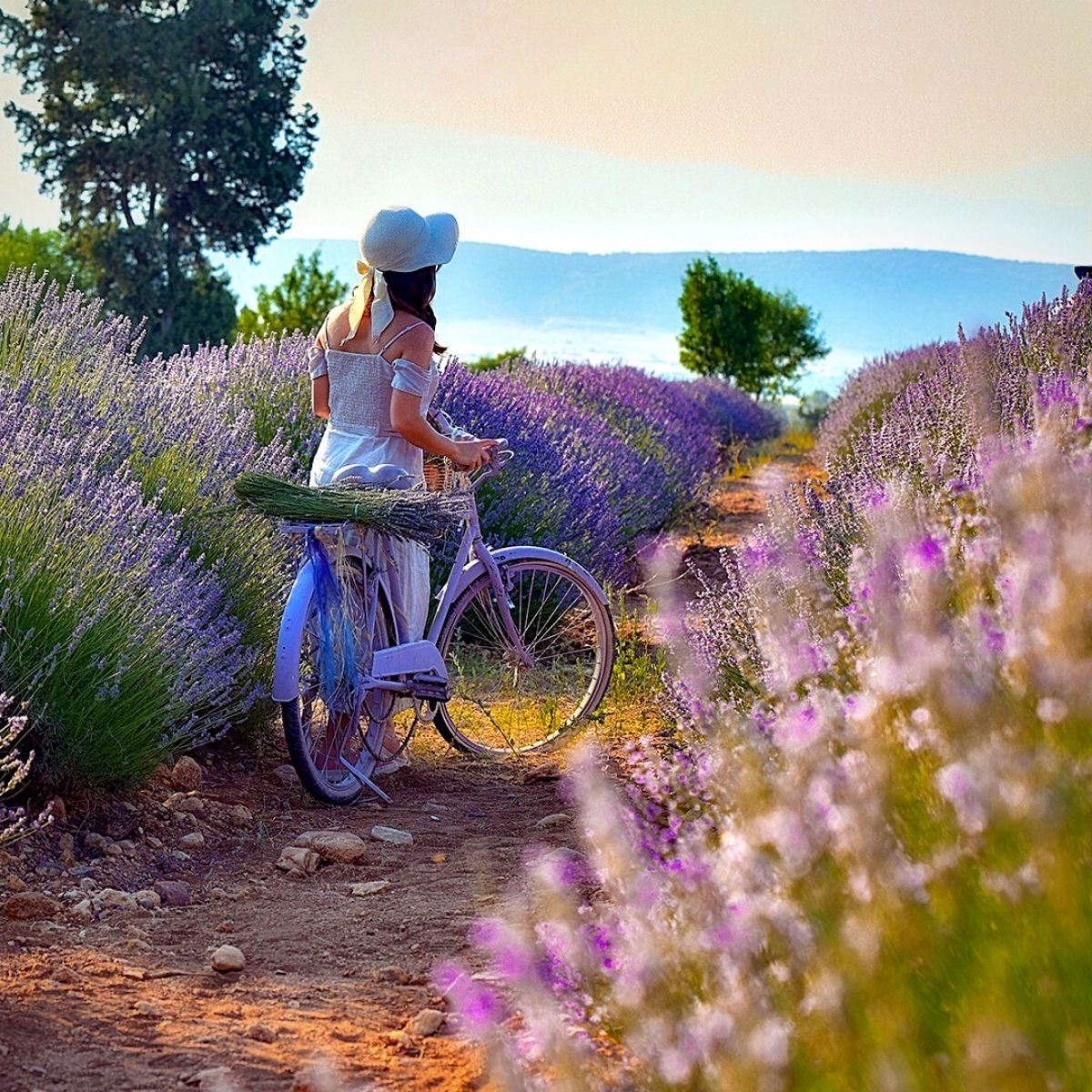
photo by @goisparta
With these many uses and benefits, it is not surprising that Isparta strives to maintain its tradition of growing roses… of course, supplemented by growing lavender and other flowers.
Header and presentation images by @goisparta

